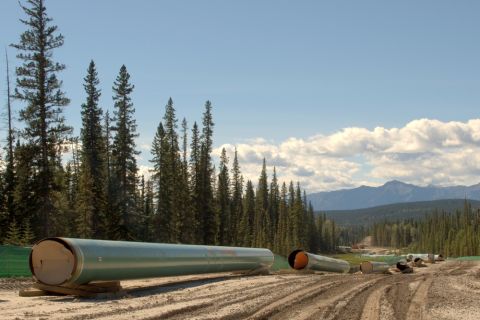Norway’s Equinor awarded oil services firms Baker Hughes, Halliburton and Schlumberger $455 million worth of drilling and well service contracts at its Bacalhau project off Brazil, the company said on Nov. 10.
“Brazil is a core area for Equinor, and Bacalhau is an important asset in the Brazilian pre-salt Santos area. Together with our partners, we are currently maturing the project towards a final investment decision (FID) which is planned in 2021,” the company said in a statement.
Bacalhau, discovered in 2012 by Petrobras about 185 km (115 miles) off the coast of Sao Paulo state, is expected to start production in 2024, with an initial production capacity of 220,000 barrels of oil per day, it said.
Equinor operates the discovery, formerly called Carcara, and has a 40% stake, while its partners ExxonMobil and Petrogal, the Brazilian unit of Portugal’s Galp, have 40% and 20% stakes, respectively.
Recommended Reading
Oil Broadly Steady After Surprise US Crude Stock Drop
2024-03-21 - Stockpiles unexpectedly declined by 2 MMbbl to 445 MMbbl in the week ended March 15, as exports rose and refiners continued to increase activity.
US Refiners to Face Tighter Heavy Spreads this Summer TPH
2024-04-22 - Tudor, Pickering, Holt and Co. (TPH) expects fairly tight heavy crude discounts in the U.S. this summer and beyond owing to lower imports of Canadian, Mexican and Venezuelan crudes.
Imperial Expects TMX to Tighten Differentials, Raise Heavy Crude Prices
2024-02-06 - Imperial Oil expects the completion of the Trans Mountain Pipeline expansion to tighten WCS and WTI light and heavy oil differentials and boost its access to more lucrative markets in 2024.
What's Affecting Oil Prices This Week? (March 11, 2024)
2024-03-11 - Stratas Advisors expects oil prices to move higher in the middle of the year, but for the upcoming week, there is no impetus for prices to raise.
Oil Dips as Demand Outlook Remains Uncertain
2024-02-20 - Oil prices fell on Feb. 20 with an uncertain outlook for global demand knocking value off crude futures contracts.



